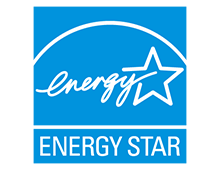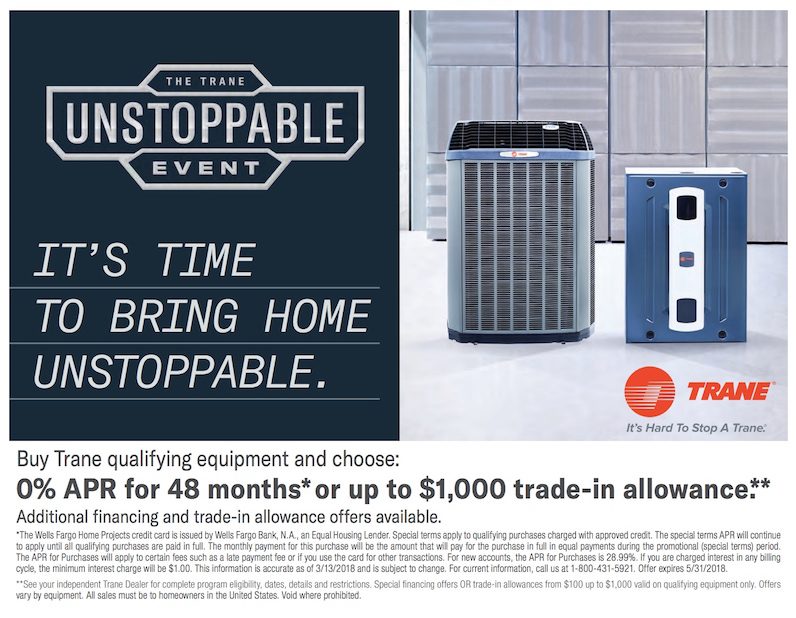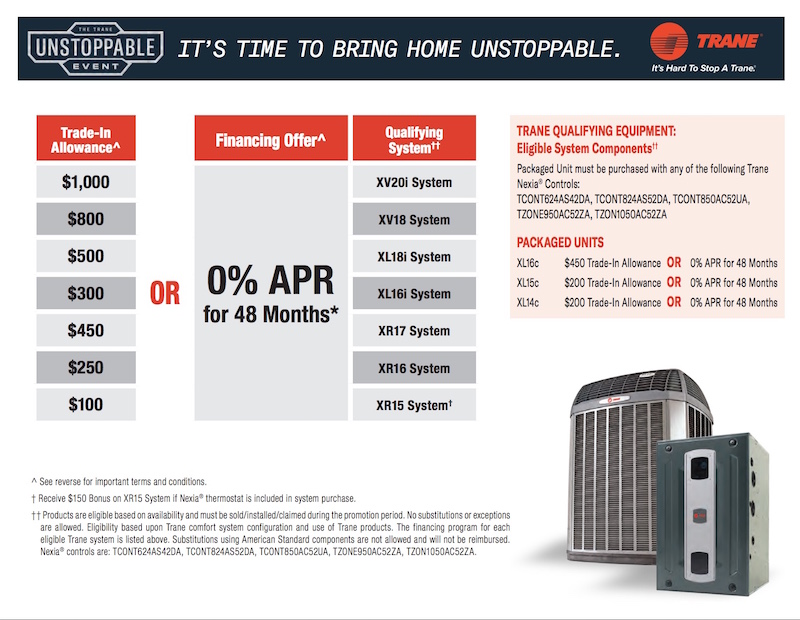
Residential Water Heater Options
Heaters are one of the most used appliances on residential properties. Buying the right water heaters and maintaining them well can mean the difference between a regular supply of hot water and being greeted by a cold shower. We at QUINNAIR Heating & Air Conditioning, Inc. offer various brands of water heaters such as Rheem, Navien, Rinnai, Smith, Bradford White, and A.O.
But these aren’t the only systems that we can install, repair, and maintain for you.We are more than happy to order and install a hot water system that meets your preferences and needs. There are different types of water heaters on the market ranging from gas-fired and hybrid. Typically, gas-operated tank water heaters are among the most popular ones and have a lifespan of 8-12 years.
The Energy-Efficiency Aspect
Many modern-day consumers want energy-efficient homes. They look for products with Energy Star certification. This is a crucial aspect because, in a challenging economy, people want to have more control over their household expenses. According to the U.S DOE, water heating accounts for 14-25% of an average home’s expenditure.
Today, when it comes to energy-saving water heaters, tankless/on-demand systems are the most popular. Unlike conventional water heaters that operate 24/7 to heat tanks of water, the tankless systems only heat water when you need it. While this technology can help save on energy costs compared to standard 40-gallon tank systems, there are some other factors that you need to look at before making your purchase decision.
Here we will take a detailed look at both tank and on-demand water heaters, their pros, and cons and how QUINNAIR Heating & Air Conditioning, Inc. can help with installation and other water heater services.
Tank Water Heaters
These are also called storage tank water heaters. They are commonly found in many homes in Colorado and across the United States. They have an insulated tank that typically holds between 30 and 60 gallons of water. This tank heats and stores the water until it’s required.
The pipe that emerges from the top of this system delivers hot water to the kitchen, bathroom, laundry areas, and other areas on a property. Tank water heaters use natural gas for their fuel and you can choose units of different capacities.
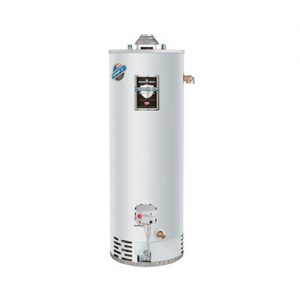
A tank water heater offers interesting features worth analyzing.
Pros of Tank Water Heaters
- Low Product & Installation Costs– Standard 30-gallon water heaters cost less than $300, and the installation of these systems is relatively simple.
- Inexpensive to Replace– If you need to replace an old or deteriorated water heater, you can easily get a similar unit for anywhere between $500 and $800.
- Energy Star Certification-It’s easy to find tank water heaters that have Energy Star program certification. It means you can save energy and money if you opt for one.
Cons of Tank Water Heaters
- These Systems Are Always On-Regardless of how energy-efficient they are, storage tanks cycle at regular intervals to heat & reheat the water to the thermostat’s preset temperature. It means, the heater uses energy regardless of whether you are using water or not.
- Large Size-Most tank water heaters take up quite a lot of space in a laundry or mechanical room.
- Capacity May Not Be Adequate-Depending on the size of your water heater, it might not be able to meet your family’s needs. Incorrect sizing can mean you run out of hot water during high demand times. You would have to wait for at least 30 minutes for more water to get heated up inside the tank.
- Less Versatile Installation-You can’t install this system in an outdoor area of your property, which makes it far less versatile in terms of installation flexibility.
- Shorter Lifespan-On average, the life expectancy of a tank water heater is approximately 12-15 years.
On-Demand Water Heaters
These are also called tankless water heaters. They use high-powered burners to heat water rapidly as it runs through the heat exchanger. The system delivers the hot water directly to showers and faucets, without storing it in any tank. On-demand water heaters are also powered with gas and these too are available in varying capacities.
Pros of On-Demand Water Heaters
- Energy Savings– On-demand water heaters only operate when there’s a demand for hot water; this reduces the energy cost of the system by about 25% each year.
- Highly Efficient-The most efficient storage tanks have an energy factor of approximately .67. But according to Energy Star stats, some on-demand systems have an energy factor that goes as high as.95.
- Reliability– If you choose a unit of the right size based on your needs, these systems can deliver a constant supply of hot water. You can get between 2 to 5 gallons of hot water per minute at the preset temperature. You may never run out of hot water; however, at peak times, you may have to deal with a low water flow rate.
- Compact Size-Most on-demand systems are very compact and no bigger than a small suitcase. They take up far less room than standard tank water heaters.
- Longer Lifespan-On-demand water heaters of the best brands can function well for 25 years or more.
- Versatility– These units can fit in anywhere in your house or even outdoors, on an exterior wall.
Cons of On-Demand Water Heaters
- Higher Cost– On-demand systems cost in the range of $700- $1500, which is almost twice as much as tank water heaters.
- Expensive Installation– In addition to higher system costs, the installation is pricier too. You would need excellent venting, which adds to the costs.
- Retrofitting Is Expensive– If you are constructing a new home and are getting tankless heaters installed, there would be no difference in costs compared to a conventional system. But if you want to add these to your existing home, the installation can be expensive and complicated. Costs for converting from a tank system to an on-demand water heater can run as high as $3000.
- Gas Units Perform Better– Gas-fueled tankless units are excellent performers and ideal for whole-house use. In comparison, the ones that operate on electricity aren’t adequate. The latter don’t have Energy Star rating either, and they consume a significant amount of energy.
The Big Question
Tank or On-Demand Water Heater- Which One Should You Opt For?

Experts can not only fix your issues, but also recommend the best water heater alternatives.
This decision comes down to how you and your family use hot water.
If you and your family members use a lot of hot water at the same time, opt for a tank water heater. An on-demand water heater would not work for you as the system heats water as you require it. That means the unit would be able to supply only a specific amount of water at any given point of time.
For example, if it’s normal in your home for someone to shower while the dishwasher is running, an on-demand water heater would genuinely struggle to heat the overall amount of water your household requires at that time. The rule of thumb is that if your family needs to use over 6 GPM (gallons per minute) at any given time, a conventional tank water heater is likely the best option for you.
An Alternative You Can Consider….
If your household uses larger amounts of hot water simultaneously, but you still want the higher energy savings of a tankless water heater, opt for multiple point-of-use (POU) tankless units in conjunction with your whole-house, on-demand system. The former are installed exclusively for a single appliance like a shower). It means the unit will heat water only for that appliance, and you can have all the hot water you need without compromising on comfort.
The QUINNAIR Heating & Air Conditioning, Inc. team is here to help you determine whether this type of solution would suit your requirements in terms of installation specifics, your budget, and more.
If you use only one hot water appliance at a time or don’t need large draws of water, consider an on-demand system. As mentioned, these water heaters, heat water only as it’s needed. This aspect means you can save a significant amount of money on your monthly energy bills when you get this system installed.
Tank water heaters have to keep a considerable amount of water hot & ready for use 24/7, which means the system is continuously using energy to heat water. However, if you don’t require that much hot water at a given point of time (a tank water heater carries up to 60 gallons), spending so much money to heat water that you won’t be using is nothing but a waste. If you also have access to natural gas, it means you can save much more. Gas on-demand systems heat water much faster and are more efficient than electric ones.
Another Important Consideration
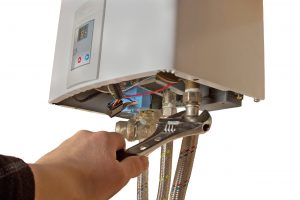
Gas water heaters are great options with pros and cons needed to consider.
Should You Opt For Gas Water Heaters?
Tank Gas Water Heaters- The Facts
- Gas water heaters are typically cheaper to operate
- Gas heaters make up that difference in price in approximately a year based on overall energy savings.
- A gas water heater uses less energy and heats faster, which means it offers higher energy efficiency.
- One major disadvantage of a gas water heater, however, is that most new models have an electric ignition system. So, if your power goes out, you won’t have hot water (except for what’s left in the tank).
Does Your Residential Water Heater Need Replacement?
If the water heater in your home is more than eight years old, you may want to consider replacing it. The older the system, the more problems it’s going to have. If you have neglected regular maintenance, the unit may need extensive repairs, which can be quite costly. In such situations, replacing the system may be a more feasible and wise decision.
Modern water heaters are also more energy-efficient, and the unit you install would use less energy and pay for itself in the long term. Our experts will inspect your existing system and offer objective advice on whether repairs or replacement would be a better option. If you choose to replace the system, they will provide you with detailed information on various systems and will guide your choices.
How To Know If Your Water Heater Needs Replacement?
Some signs that you may need to replace your water heater system include:
- The storage tank is leaking from the bottom.
- The system is over eight years old.
- Your hot water system hasn’t been maintained regularly and is functioning erratically.
- The water doesn’t get sufficiently hot.
- Inadequate hot water.
- Rust-colored or smelly water coming from the heater.
- The system is making odd noises- caused by sedimentation.
The Water Heater Installation Experts
If you have noticed any of these problems in your existing system, call us today. Whether you are looking for a gas, tank, or on-demand water heater, QUINNAIR Heating & Air Conditioning, Inc.is here to help. We can install, replace, or repair any water heater. Our team is knowledgeable, well-trained, efficient, and professional. We assure you of customized services at the most cost-effective price points.
For any more information on our expert water heater services, feel free to contact QUINNAIR Heating & Air Conditioning, Inc. at (303) 980-3788. You can also send us your queries through this Online Form.




